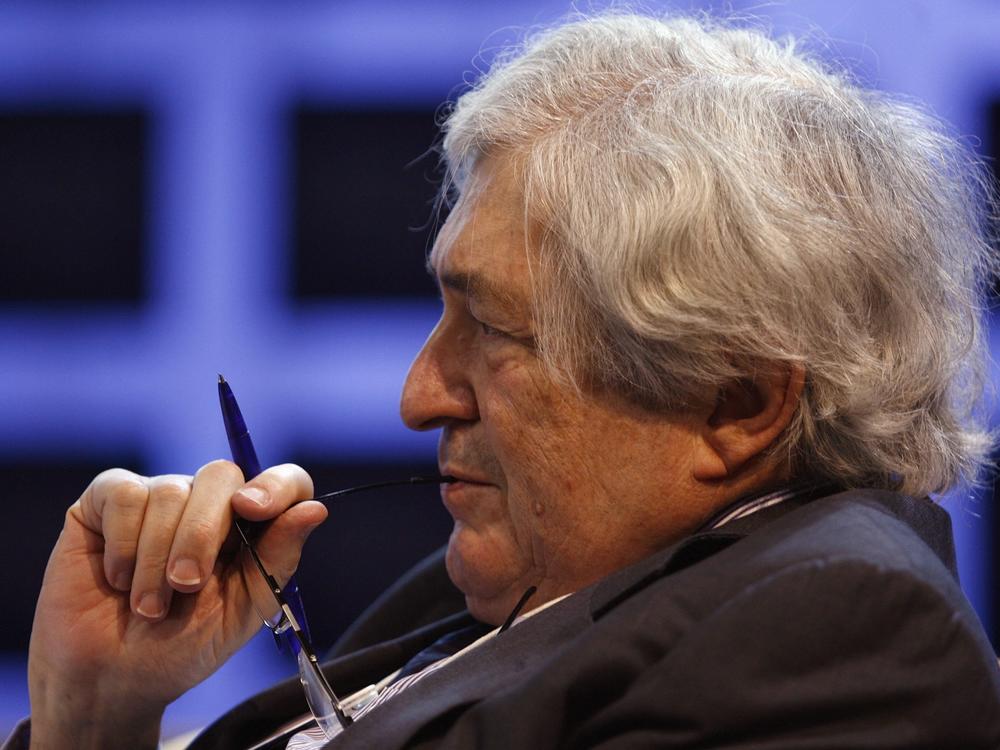Section Branding
Header Content
James Wolfensohn, Former World Bank Chief And Champion Of The Poor, Dies At 86
Primary Content
James Wolfensohn, whose reforms as the head of the World Bank Group for a decade made him known as a champion of the world's poor, died Tuesday in New York. He was 86.
The Sydney-born banker was president of the World Bank from 1995 to 2005. Throughout his time at the helm, he led its transformation, "increasing decentralization, advancing the Bank technologically, and making the organization more open and transparent," World Bank Group President David Malpass said in a statement on Wednesday.
Malpass added that under Wolfensohn's presidency, the Washington-based organization "sharpened its focus on poverty reduction and redoubled its efforts to combat corruption, give voice to the poor and magnify the impact of development investments."
Part of Wolfensohn's strategy to alleviate global poverty was to accelerate a shift away from difficult-to-maintain infrastructure projects in developing countries to more social-sector lending programs. He also concentrated efforts on rebuilding war-torn countries, including Rwanda and Bosnia.
Under his leadership, the World Bank became one of the largest financiers of primary education, health, HIV/AIDS programs and the environment, according to its website.
In 2010 Wolfenson published a memoir, "A Global Life: My Journey Among Rich and Poor, from Sydney to Wall Street to the World Bank."
Before his appointment by President Bill Clinton and later George W. Bush, Wolfensohn was passed over for the post at the head of the World Bank in 1981. As a result, he founded his own investment banking firm in New York, Wolfensohn & Co.
That's also around the time he renounced his Australian citizenship to become an American so that he would be eligible for the job in the future.
Wolfensohn spent most of his life in the U.S. He attended Harvard Business School in 1957 and graduated with a master's in business administration.
At Harvard, he became friends with billionaire David Rockefeller Jr., according to Bloomberg. "Wolfensohn credited Rockefeller — the grandson of oil baron John D. Rockefeller — with the opportunities he found in his adopted country," the outlet reported.
Following his stint at the Ivy League, he returned to Australia where he became managing director at Darling & Co. before joining an investment bank in London. In the mid-1970s he made his final move to the States as an executive partner at Salomon Brothers.
In addition to Wolfensohn's long career in finance, he was an accomplished cellist and philanthropist. As a life-long music lover, he raised $60 million to rebuild New York's Carnegie Hall, even performing alongside world-renowned cellist, Yo-Yo Ma.
He also founded the Wolfensohn Center for Development at the Washington think-tank, the Brookings Institution, which focused on anti-poverty programs and global economic governance.
In his younger years, Wolfensohn was an officer in the Royal Australian Air Force and represented Australia in fencing at the 1956 Olympics.
Wolfensohn's wife Elaine died earlier this year. He is survived by three children.
Copyright 2020 NPR. To see more, visit https://www.npr.org.

